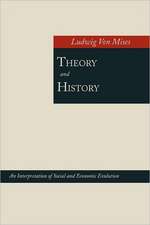Reflections on the Revolution in France
Autor Edmund Burke Editat de L. G. Mitchellen Limba Engleză Paperback – 26 mar 2009
| Toate formatele și edițiile | Preț | Express |
|---|---|---|
| Paperback (11) | 48.95 lei 10-17 zile | +19.03 lei 6-12 zile |
| Oxford University Press – 26 mar 2009 | 48.95 lei 10-17 zile | +19.03 lei 6-12 zile |
| CREATESPACE – | 55.14 lei 3-5 săpt. | |
| Penguin Books – 29 sep 1982 | 60.01 lei 21-33 zile | +23.54 lei 6-12 zile |
| Mint Editions – 30 noi 2020 | 62.86 lei 3-5 săpt. | |
| – | 79.38 lei 3-5 săpt. | |
| Hackett Publishing Company – 15 sep 1987 | 100.18 lei 3-5 săpt. | +18.23 lei 6-12 zile |
| CreateSpace Independent Publishing Platform – | 112.39 lei 3-5 săpt. | |
| Broadview Press Inc – 9 dec 2021 | 142.15 lei 3-5 săpt. | +26.02 lei 6-12 zile |
| Stanford University Press – 28 feb 2002 | 257.52 lei 3-5 săpt. | |
| Digireads.com – 17 sep 2018 | 75.45 lei 6-8 săpt. | |
| Cambridge University Press – 21 aug 2013 | 368.30 lei 6-8 săpt. | |
| Hardback (3) | 82.72 lei 3-5 săpt. | +14.74 lei 6-12 zile |
| Mint Editions – 8 dec 2020 | 82.72 lei 3-5 săpt. | +14.74 lei 6-12 zile |
| Hackett Publishing Company – 14 sep 1987 | 268.08 lei 3-5 săpt. | |
| Stanford University Press – 31 ian 2002 | 841.84 lei 6-8 săpt. |
Preț: 48.95 lei
Preț vechi: 57.73 lei
-15% Nou
Puncte Express: 73
Preț estimativ în valută:
9.37€ • 9.78$ • 7.75£
9.37€ • 9.78$ • 7.75£
Carte disponibilă
Livrare economică 03-10 martie
Livrare express 27 februarie-05 martie pentru 29.02 lei
Preluare comenzi: 021 569.72.76
Specificații
ISBN-13: 9780199539024
ISBN-10: 0199539022
Pagini: 352
Dimensiuni: 128 x 196 x 16 mm
Greutate: 0.25 kg
Editura: Oxford University Press
Colecția OUP Oxford
Locul publicării:Oxford, United Kingdom
ISBN-10: 0199539022
Pagini: 352
Dimensiuni: 128 x 196 x 16 mm
Greutate: 0.25 kg
Editura: Oxford University Press
Colecția OUP Oxford
Locul publicării:Oxford, United Kingdom
Notă biografică
Born and educated in Oxford, Leslie Mitchell is also the author of Charles James Fox (1992, #25).
Cuprins
Reflections on the Revolution in France Acknowledgments
Introduction
Biographial Note
Burke's Prefatory Note
Reflections on the Revolution in France
Notes Bibliographical Note
Recenzii
Pocock is, without question, the leading historian of eighteenth-century British-American political thought. . . . All of his skills are brilliantly employed in the Introduction. . . . In addition to being the best treatment of Burke's thought in context, it is . . . the best and most concentrated presentation of Pocock's own view of the main contours of eighteenth-century political thought. . . . Finally, the Reflections and other texts by Burke are then woven into this rich fabric, thus providing the reader with an understanding of Burke's thought which is deeper and more complex (and surely more historically sensitive) than any available in the secondary literature. --James Tully, McGill University
Of all the scholars who currently study the history of Western political thought, no one is more fertile, eloquent, and ingenious than J. G. A. Pocock. --Keith Thomas, in the New York Review of Books
Of all the scholars who currently study the history of Western political thought, no one is more fertile, eloquent, and ingenious than J. G. A. Pocock. --Keith Thomas, in the New York Review of Books
Textul de pe ultima copertă
“Providing a fresh perspective on a much-studied classic, Clark’s edition is both innovative and informative. The first modern edition to reprint the text of the first edition of the Reflections, it brings readers closer to the historic document. . . . This volume should become the starting point for serious study of the Reflections.”—F. P. Lock, Queen’s University
“ . . . [Reflections on the Revolution in France] will help both the student and the advanced scholar to engage with one of the founding texts of modernity, as well as providing, in its own right, an interpretive contribution to Burke studies.”—History of Political Thought
“ . . . [Reflections on the Revolution in France] will help both the student and the advanced scholar to engage with one of the founding texts of modernity, as well as providing, in its own right, an interpretive contribution to Burke studies.”—History of Political Thought























